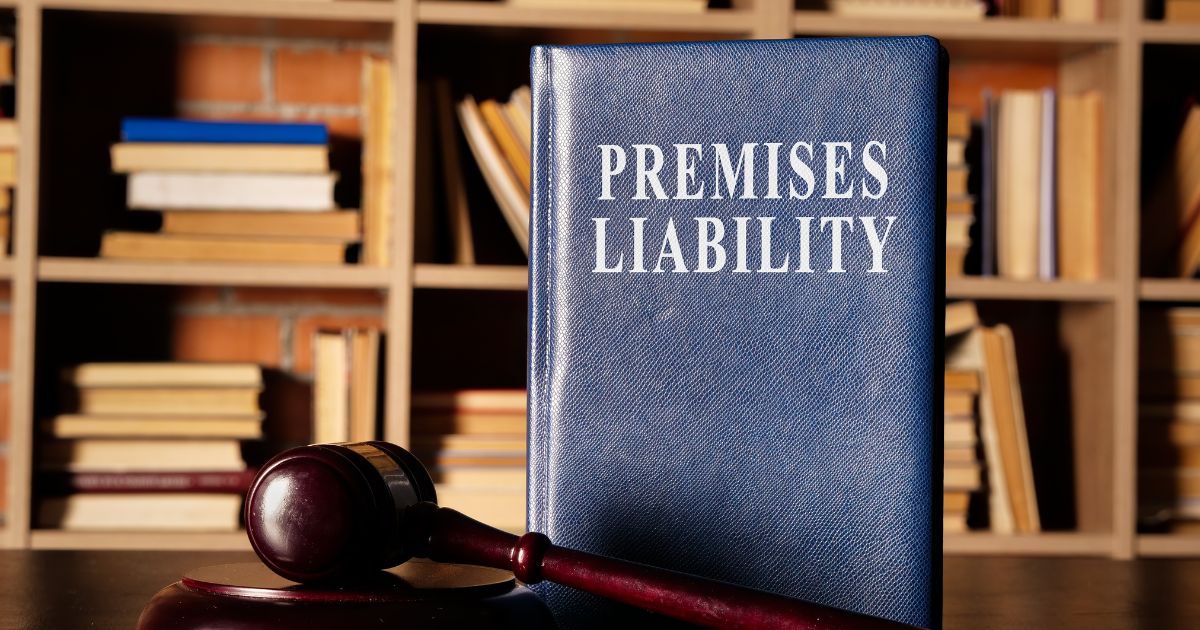Does Insurance Law Cover Premises Liability Claims?

Premises liability can be part of a homeowners’ or business insurance policy and is used to cover damages when a third party becomes injured on a property and files a personal injury claim. Like any other type of insurance case, there can be two or more sides to a story and the help of an experienced insurance lawyer may be needed.
What Do Premises Liability Policies Cover?
Premises liabilities policies can provide coverage for injuries incurred from slips and falls, falling equipment, or fires. So, if an apartment building’s parking lot was not plowed soon after a major ice storm and a tenant falls and gets hurt, that tenant might decide to make a claim on the owner’s policy. Other examples of hazardous situations that might lead to claims include:
- A lack of security
- Exposed wires
- Poor lighting in hallways and stairwells
- Swimming pools with damaged railings
- Unsecured guard dogs
All insurance policies have exclusions or limitations, and these can be potential loopholes that prevent claimants from receiving the damages that they are entitled. If there was an obvious safety hazard and/or the property owner was clearly negligent, the injured party may decide to pursue a lawsuit if the insurer is not willing to provide adequate compensation. These cases are most often settled out of court, but complications are not uncommon.
How Does Insurance Law Apply to Premises Liability Claims?
Home and business owners are supposed to ensure that their properties are safe for all who visit, but sometimes hazardous situations exist, and people become injured. Most premises liability claims apply to businesses, but renters and homeowners also act negligently and cause third-party injuries. A third party might be able to file a successful premises liability claim if the property owner was aware of it or should have been under reasonable circumstances.
Business owners must adhere to a duty of care, meaning that they are legally obligated to make their businesses safe for visitors. These three categories apply:
- Invitees: These are people who are expected or invited to visit businesses, like clients and customers.
- Licensees: This category includes people who might not be expected, like utility workers and mail carriers.
- Trespassers: Trespassers are never expected (or wanted) in a home or on business property.
Invitees are owed the highest duty of care since they are expected to be on the property. Licensees are owed a somewhat lesser duty of care but should still expect to be reasonably safe. As for trespassers, they typically are not entitled to file personal injury claims since they should not have been there in the first place. If the trespasser was a child, there may be an exception.
In other cases, a third party might make a fraudulent personal injury claim, stating that they were injured just to receive compensation. There are also claims where property owners are not found to be negligent, even when third parties are quite confident that their injuries are the owner’s fault.
The Plainfield-area Insurance Lawyers at the Law Offices of Herold Law, P.A. Represent Clients in Premises Liability Cases
The best way to understand premises liability cases is to speak with a qualified insurance lawyer. For a free consultation on any type of premises liability case, reach out to the experienced Plainfield-area insurance lawyers at Herold Law, P.A. Call our Warren, New Jersey offices at 908-647-1022 or complete our online form for more information. With offices in the Plainfield area including Warren, New Jersey, we proudly serve clients across New Jersey.




 908-679-5011
908-679-5011



